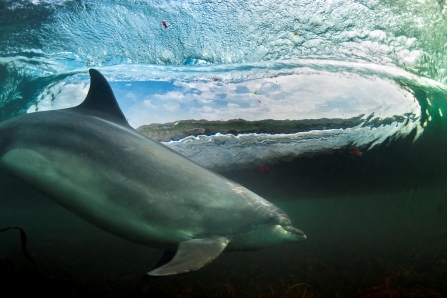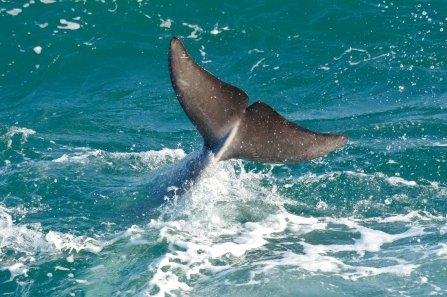There is an abundance of wildlife in waters around the south west coast including the resident pod of 28 bottlenose dolphins which can be seen from the cliffs and beaches feeding, playing and breeding in our waters. Sadly, however, this pod is in serious threat of decline due to their low numbers, lack of statutory protection, and increased vulnerability to disturbance owing to their proximity to human populations.
To aid their protection the South West Bottlenose Dolphin Consortium, a partnership of stakeholders lead by Cornwall Wildlife Trust, was set up in 2016 to gather the information needed. The consortium collated records and photos of bottlenose dolphin encounters, with reports coming from ferries, marine tour operators, charitable organisations, land-based observers and other interested parties. An amazing amount of information was gathered during that research, but it was highlighted that this amazing population was at severe risk of local extinction and as much more work was needed to work towards their effective conservation.


